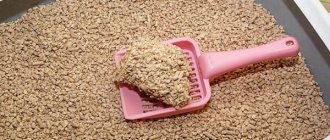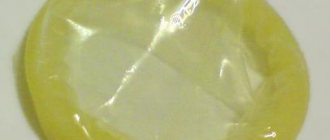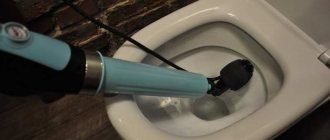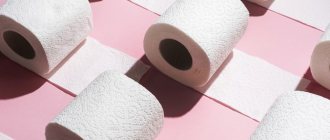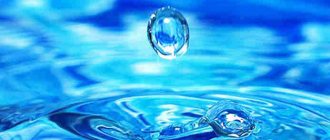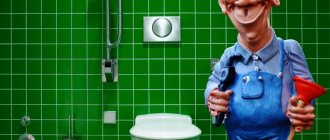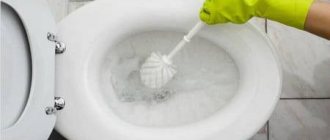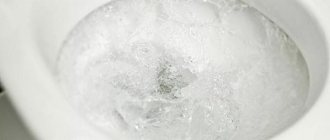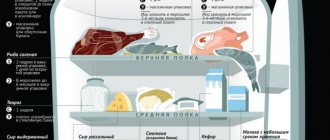Everyone knows what a toilet is for. But the idea of using it as a garbage disposal does not leave the minds of housewives - they often ask what can be thrown into the toilet. For example, it would be very convenient to flush condoms, cat litter, napkins, and toilet paper. In fact, using it for other purposes is dangerous, and the list of items that you can get rid of this way is small. Many materials can cause clogs and even burst pipes. Let's figure out how to handle the toilet correctly and safely.
Hand wipes
Although paper napkins or towels may look similar to toilet paper, it is not recommended to throw such products into the toilet. The fact is that they do not dissolve well in water, so over time the sewer will certainly become clogged. And wet wipes made from synthetic materials never dissolve. In fact, they are one of the most common causes of clogged pipes.
If the toilet is still clogged, you can try to clean it yourself without resorting to the services of a plumber. We have previously talked about the most effective methods - perhaps you will also find them useful.
Photo: Pixabay
What should not be flushed down the drain?
If you think that by flushing a harmless ear stick or a wet wipe down the toilet you can forget about it forever, then you are deeply mistaken. Such seemingly familiar things to us can cause irreparable damage to the entire sewer system. In addition, some objects entering the environment can have a detrimental effect on the person himself.
Paper towels
Paper towels are much thicker than toilet paper and are more difficult to dissolve in water. The risk of clogging is especially high if you wash a lot of crumpled leaves at once.
Egg shells
Housewives often clean boiled eggs in the sink; large shells are thrown into the trash, and small remains are accidentally washed down the sink. Did you know that the tiny but sharp pieces of the shell are like glue that holds several large pieces of food together? Anything that is washed down the sink after the shell will form a clump and lead to a clog.
Band-Aid
One small patch seems harmless, but it is not. It does not dissolve in water and can cause a blockage.
Hair from a comb
While cleaning the comb, some flush their hair down the toilet over and over again. And in vain, because tangled hair will join the rest of the objects thoughtlessly thrown there, and then a blockage will inevitably occur.
Chewing gum
Chewing gum does not dissolve in water, and it can easily stick to the pipes and form a clog. It is for these reasons that chewing gum should not be thrown down the drain or washed down the sink.
Pasta and rice
This is a very sticky food that swells quickly with water. Flushed down the sink or toilet, the remains of lost rice or pasta dissolve extremely slowly, clogging the drain.
Cotton pads
Although cotton pads are small, they can also absorb water. Therefore, it is better to throw them in the trash.
Contact lenses
Contact lenses are made of a polymer material that does not decompose for many years. Of course, a tiny lens is unlikely to clog a sewer pipe, but it can cause harm to the environment. Experts estimate that every year more than 20 tons of lenses end up in sewers and pollute water.
Wet wipes
There is probably no person in modern society who has not used wet wipes at least once in his life. Many manufacturers claim that you can flush wet wipes down the toilet, just like toilet paper.
The fibers of wet wipes are even coarser than toilet paper, which creates even more problems in the drain. They do not dissolve and continue to travel through the sewer. Wet wipes must not be flushed down the toilet!
A somewhat similar problem arose in the USA, when mothers, having read on the packaging of wet wipes from manufacturers that they can be flushed down the toilet, threw them away en masse after wiping their baby’s bottom.
As a result of this publicity stunt, several sewers in major US cities were clogged and required emergency repairs. Although this is already a recognized fact, citizens of the North American continent stubbornly, out of habit, continue to flush wet wipes down the toilet.
Wet wipe companies earn more than six million dollars a year. The City of Vancouver, Washington, has spent more than $1 million cleaning up large and small sewers.
In the city of London, a 15-ton, bus-sized lump of wet wipes was cleaned out of a drain, which has a chance of becoming a world record.
Cigarette butts
Cigarette filters do not decompose for a very long time, and the cigarettes themselves are full of toxic chemical compounds that can also end up in the central water supply.
Cat excrement
Sewage is designed to dispose of waste from living creatures, which includes cats. From this point of view, everything is correct, provided that the owner uses a special scoop with a grid to sift out the filler. However, often the pellets are washed out of the litter box along with the cat's excrement.
Some owners also send crumpled wet litter this way. In water, the granules harden, clump into large pieces and form a plug in the pipes. It is better to throw the litter along with solid waste into a waste bin. By the way, this manufacturer’s recommendation is on most packages.
Household chemicals
This includes liquids for cleaning floors, windows, cleaning products and much more. The reason is the same as for medications - household chemicals saturate the water with chemicals that are not cleaned by filters. Exceptions to the rules are special products for cleaning toilets and removing blockages in pipes.
Fats
Vegetable fats are the bane of the entire sewer system. As soon as you decide to flush the remains of fatty food or burnt oil down the toilet, immediately remember the fact that fat does not dissolve in water, but cools and turns into a fat lump that clogs the pipes.
Dental floss
Dental floss is made of fibrous material. Therefore, it can collect inside sewer pipes and form blockages. In addition, throwing the thread down the drain is very unecological - synthetic fiber does not decompose and is harmful to the environment.
Chlorine bleach
Chlorine-based plumbing cleaners are very aggressive. So aggressive that they can damage pipes if used too often. In fact, the toilet does not need daily cleaning using industrial products. Instead, it is preferable to use vinegar - it will help get rid of lime deposits.
Medicines
It would seem - what else could be the safest place for medicines, if not the toilet. After all, this is how you can protect your loved ones as much as possible, especially if the pills or medicine have long expired. But you need to understand that when reacting with water, any chemical will cause some kind of reaction. And tablets in this case are no exception. As a consequence, the development of a pathogenic environment inside the sewer, microbes, bacteria, which, one way or another, enter the environment and destroy all living things.
Hair
Although hair is a product of human activity and is not environmentally friendly, it is strictly forbidden to wash it off! Just like dental floss, human hair has the ability to form large clumps that clog sewer ducts, around which various debris, dirt, and grease stick, which is the source of foul odor from the sewer and toilet.
After combing or cutting, gather the hair into a ball and throw it in a trash bin or, better yet, burn it in a fire. Some people believe that it is wrong to throw hair into the trash bin, since there is a sympathetic connection between the hair and its owner. Hair is used for love spells and spells by all kinds of fortune tellers and sorcerers.
Condoms
Anything that doesn't end up in the sewer pipe and condoms are perhaps one of the most common things. Although they seem quite thin and small, the damage they cause is not insignificant. Condoms can not only create a blockage in the toilet, but also completely disable the entire system.
Used oil
As you know, fat is completely insoluble in water. Moreover, upon contact with cold water, it quickly hardens and forms a blockage. Where to put the remaining oil and fat from the frying pan after cooking, if not pour it into the sink? The correct way to dispose of it is to dilute the residue a little with water and a drop of detergent, mix it and pour it into a durable bag, which should later be thrown into the trash.
Feminine hygiene products
They are designed to absorb moisture, which means they can swell greatly in water, which can lead to blockages.
Polyethylene
Do not throw bags or any pieces of polyethylene into the toilet. It is lightweight, but despite this, it creates large traffic jams in places of accumulation. If this problem can be avoided, then the waste from the sewer goes further into the general drain. All this plastic is harmful to the environment. 8 million tons of such garbage accumulate in the ocean every year. Some comes from land or ships, some is brought by river flows, but a large proportion is formed after being flushed into the sewer.
Tea brewing
Tea leaves are very small and easily flushed from the toilet, so they seem harmless. But, having passed further into the pipes, they accumulate on bends, at joints and also create blockages. Then it is very difficult to remove them, since the blockage broken by the plumber simply moves to another place. In addition, when washed off, the tea leaves a yellowish coating on earthenware and ceramics. It is very difficult to clean. To avoid having to bleach the toilet with bleach later, you should not pour tea into it.
Chemical cleaning
People have long been accustomed to using ready-made solutions in all areas of their lives, and manufacturers are successfully using this. Household chemicals stores offer a fairly wide selection of specialized products for cleaning pipes and toilets. They are available in the form of liquids, gels, powders and granules. There may be disposable packaging and large containers designed for several times. These products cope excellently with the problem, while also performing a number of other functions: Disinfect the plumbing fixtures to be cleaned. Eliminates unpleasant odors from sewer pipes. Keep pipes clean. Have a preventive effect. The most common brands:
- Tiret. Mole.
- Domestos.
- Tofix.
- Domol.
How wastewater is cleaned
What path does wastewater travel? First, they flow into the sewer system and collectors, then enter treatment facilities and, cleaned of debris and hazardous impurities, are returned to water bodies.
In order to purify water, treatment plants use special grids with holes with a diameter of about 6 mm. It is in them that the garbage that ends up in the sewer is retained - paper and food waste, and in addition to them - textiles, wet wipes, cotton swabs, condoms, diapers, pads and tampons, medicine packaging. Sometimes jewelry that has fallen down the bathtub drain and mobile phones that have fallen into the depths of the toilet “float” here. The found waste is compressed and dehydrated, and then sent to landfills.
But it’s becoming more and more difficult to clean wastewater from foreign objects every year. And that's why.
Do I need to turn off the water when going on vacation or to the country?
- It's a matter of habit. Someone is confident in the reliability of his system, he has new expensive taps and pipes, they were installed by good specialists, so he has no fear that in his absence something will happen and he will flood the entire entrance. Some people, on the contrary, are not sure of reliability, so they block everything they can. In my opinion, in order to get rid of the obsessive phobia that a hose has broken somewhere in the kitchen, and I’m relaxing here at the dacha, it’s worth installing automatic protection against leaks, the so-called “hitchhiking.” This is a fairly simple device, consisting of an electromagnetic valve, which is placed at the water inlet into the apartment, a programmer and several sensors, which are placed under the kitchen, under the bathroom. The meaning is this: if water gets on the sensor, the programmer immediately gives the command to turn off the water. I recommend that customers install the “aquastop” also on a heated towel rail, which is usually connected to a common riser and the resulting leak cannot be eliminated by turning off the inlet tap.
Photo: future2day.ru
Can I have tampons?
In order to understand whether tampons can be flushed down the toilet, you need to pay attention to their composition. Modern tampons are a mixture of regular cotton wool, fibers and absorbent material.
Some of them are made cylindrical by inserting a strong thin rope inside. For convenience, others use an applicator made of two tubes. They are also distinguished by size, depending on the intensity of a woman’s menstruation.
- Mini
- Normal
- Super
- Super plus
When the tampon consists of soluble cellulose and is small in size, it can be washed off according to its instructions. You can also wash off tampons made from soluble cardboard and other soluble materials, as indicated in the instructions.
